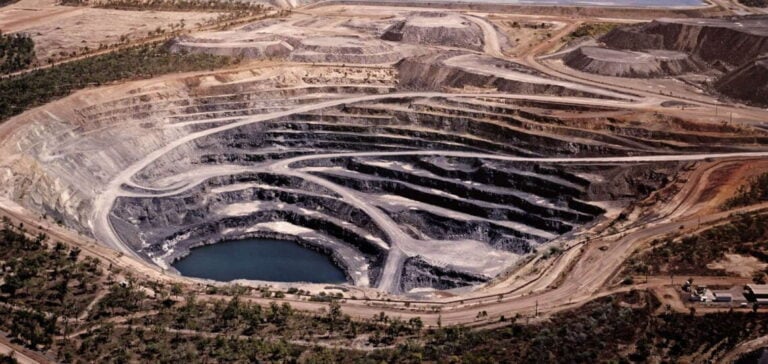As a major supplier of uranium to the European Union, Niger has difficulty making a living from its ore, with low prices, reserves that are difficult to exploit and international operators who are sometimes considered too greedy.
“For several years, the uranium industry worldwide has been characterized by a downward trend in prices,” lamented Niger’s Minister of Mines, Yacouba Hadizatou Ousseini, interviewed by AFP, citing in particular “environmental pressure” after the Fukushima disaster or the exploitation of “particularly rich deposits in Canada.
In Niger, the gigantic Imouraren deposit, which was supposed to produce 5,000 tons per year for 35 years, has been at a standstill since 2014, “given the market conditions”, explains the French group Orano, which was supposed to operate it.
The former Areva recently cut back on its activities in this country, which supplies 20% of Europe’s uranium.
Last year Cominak, one of its subsidiaries that had been operating since the 1970s in the desert region of Arlit, ceased operations after resources were exhausted. And the production of its second site, operated by its subsidiary Somaïr, has decreased with 2,000 tons extracted in 2021, against 3,000 nine years earlier.
This would be enough to sign the death warrant for Niger’s uranium? Not necessarily.
After years of very low prices, prices are now on the rise, at $50 per pound of uranium, a far cry from the $110 of 2007 but up from the late 2010s.
“Prices are low compared to the cost of production. Many mines have closed for this reason.
But today, the recovery is slow.
In the long term, there are important needs, especially for power plants in Russia and China,” a French ore expert told AFP on condition of anonymity.
France is no longer alone
A prospect that is whetting appetites in Niger.
Chinese, Australian, American, British, Italian, Canadian, Indian and Russian companies have obtained exploration permits in recent years.
“Today, 31 uranium exploration licenses and 11 uranium exploitation titles are in force,” the Nigerian Minister of Mines told AFP.
On November 5, the Canadian company Global Atomic Corporation carried out its “first shot” symbolizing the start of uranium extraction on its site, located about 100 km south of Arlit.
It promises to inject some 121 billion FCFA (184.4 million euros) into the construction of a mine in 2023.
“Uranium (…) is open to those who have the technological capacity to exploit it,” Nigerien President Mohamed Bazoum said in late 2021.
“There is a future for Niger’s uranium, but not necessarily with France,” summarizes the French expert.
Historically, Niger has had little benefit from its rich subsoil. In 2020, its contribution to the national budget did not exceed 1.2%.
The subject has several times turned into a political and economic tug of war with the former French colonial power.
In 2007, President Mamadou Tandja demanded and obtained a 40% increase in the purchase price of uranium by Areva.
His successor Mahamadou Issoufou, himself a former employee of Areva, was indignant that his country, the fourth largest uranium producer in the world, derived only “5% of the national budget’s revenue” from this mineral at the time.
An agreement had been signed in 2014, after lengthy negotiations, providing for greater benefits for Niger via the construction of the giant Imouraren mine, still awaited.
“There is no win-win partnership: Niger has not made any profit from uranium mining,” Ali Idrissa, coordinator of the Nigerien Network of Organizations for Transparency and Budget Analysis, a coalition of NGOs, told AFP.
Uranium “has brought us nothing but desolation (…) and all the benefits for France,” adds Tchiroma Aïssami Mamadou, a Nigerian expert who targets the quasi-monopoly position occupied for nearly half a century by Orano, the former Areva.
“Since the creation of the mining companies in Niger, and until the end of 2021, the State of Niger has benefited from 85% of the direct economic spin-offs of the mining companies, consisting of the mining royalty, all other taxes and dividends,” Orano replied, when questioned by AFP.
The French company adds that it has invested tens of millions of euros “in projects to improve the health of the population, the schooling of children, access to water and the economic development of the communes in the areas where the mining sites are located.





















